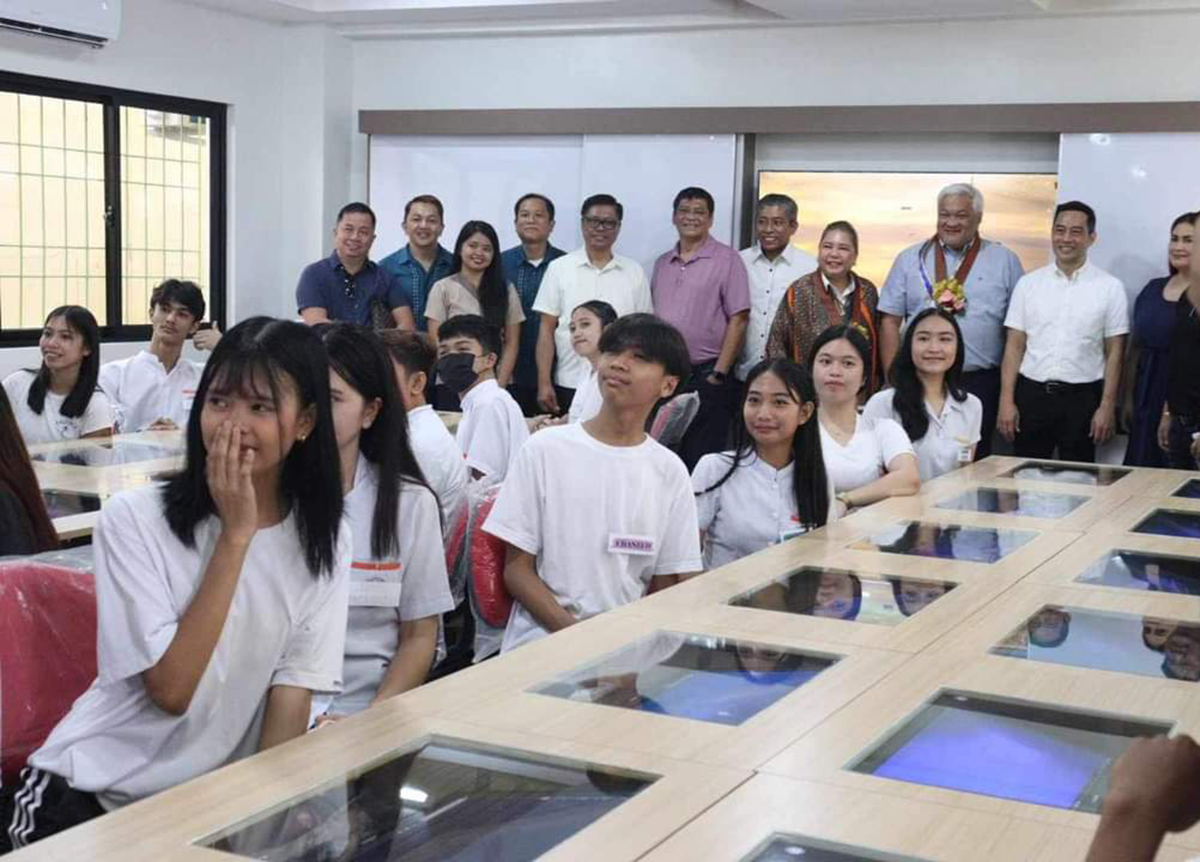
The critical thinking skills of students could be improved with strong digital connectivity amid technological advancements in education, according to think tank Stratbase ADR Institute. This photo shows Angeles City Mayor Carmelo Lazatin Jr. (standing, 3rd from left), other officials, and students watching a multi-media presentation during the inauguration of the modern computer laboratory at the Angeles City National Trade School on August 6, 2024. | PHOTO: Angeles City government
MANILA, Philippines — Strong digital connectivity could help students develop their critical thinking skills as technological advancements in education offer more learning opportunities, especially in the areas of math, science, and reading.
Stratbase ADR Institute pointed this out, emphasizing that Filipino students should improve their critical thinking so they can better analyze the credibility of information, make sound decisions, and solve problems.
According to Victor Andres Manhit, “[t]echnological advances have allowed foundation subjects like math, science, and reading to be taught more effectively, with interactive e-learning modules enriched with a multi-media learning experience.”
The think tank president also noted that “the conventional classroom methods can now be complemented by the rich content and digital skills that could be acquired through exposure to the online world – of course with proper guidance and precaution from mentors.”
READ: PH students still among lowest scorers in reading, math, science – Pisa
For these reasons, the group said, the government should prioritize strengthening the digital connectivity in the country so that learning institutions will be equipped to improve students’ critical thinking skills.
Manhit said the lack of critical thinking skills among Filipino students must be addressed, especially with the country’s recent poor performance in the Programme for International Student Assessment (Pisa) where the Philippines ranked sixth to last in reading and mathematics while it ranked third to the last among 81 countries in the science category.
Improving Pisa and digital literacy can be achieved through efficient internet connectivity and close coordination of the government with private sectors, Manhit stressed.
READ: Nat’l Fiber Backbone launched, starting with Laoag-QC phase
In his third State of the Nation Address last July 22, President Ferdinand Marcos Jr. lamented that as of 2022, only 77 percent or 20.6 million households nationwide have connected to the internet – which, he said, is “much too low.”
He then highlighted the implementation of the first phase of the National Fiber Backbone program. The phase two and three of the program began this year and are expected to be completed in 2026.
The National Fiber Backbone program, with the first phase covering 1,245 kilometers from Laoag City in Ilocos Norte to Quezon City, is expected to increase the internet penetration rate in the country from the current 33 percent to 65 percent, or 70 million out of 115 million Filipinos.